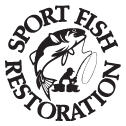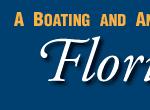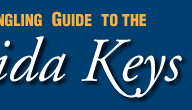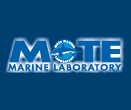CONTACT US:
Florida Fish and Wildlife
Conservation Commission
Fish and Wildlife
Research Institute
100 Eighth Avenue SE
St. Petersburg, Florida 33701
727-896-8626
|
|
|
Mote Marine Laboratory
Tropical Research Laboratory
24244 Overseas Hwy.
Summerland Key, FL 33042
305-745-2729
|
|
|

|
|
This project was funded in part by a grant awarded from Mote Marine Laboratory's Protect Our Reefs Grants Program, which is funded by proceeds from the sale of the Protect Our Reefs specialty license plate. Learn more at .
|

|
|
Additional funding for this project was obtained through the Federal Aid in Sport Fish Restoration Fund.
|
|
|
 |
A visit to South Florida's national parks can be an experience you won't soon forget. Three national parks border the Florida Keys: Biscayne, Dry Tortugas, and Everglades. These national parks offer recreational opportunities ranging from snorkeling to fishing to camping on a backcountry chickee.
|
Biscayne National Park
Biscayne National Park is a very diverse place located within sight of downtown Miami. Four distinct ecosystems melt into one another creating rich edge communities, or "ecotones." These edges support an incredible array of wildlife, including hundreds of species of colorful fish, plants found nowhere else in the United States, and visitor favorites like pelicans, manatees and turtles. Winds, currents, storms and the park's close proximity to one of the nation's largest urban areas means that the entire park is in a constant state of flux-ever-changing in the face of new challenges posed by the constant cycle of building and destruction.
|
Everglades National Park
Everglades National Park, location north of the Florida Keys, is the largest subtropical wilderness in the United States and boasts rare and endangered species. It has been designated a World Heritage Site, International Biosphere Reserve, and Wetland of International Importance, significant to all people of the world.
|
Dry Tortugas National Park
Dry Tortugas National Park lies at the farthest end of the Florida Keys, closer to Cuba than to the American mainland. To reach this remote ocean wilderness one must travel by boat or plane over 68 nautical miles of open sea. The park is home to historical and natural wonders above and below the water's surface and has long been an inspiration to visitors.
The park's coral and sea grass communities are among the most vibrant in the Florida Keys. The Sooty Tern finds its only regular nesting site in the United States on Bush Key, adjacent to Fort Jefferson. Large sea turtles lumber onto the park's protected beaches each summer to bury their clutches of eggs. These and other wonders make this park a truly one-of-a-kind place.
There are several ways to reach Dry Tortugas National Park: private boat, seaplane, charter boat (diving or fishing), and ferry. More information about travelling to Dry Tortugas National Park can be found HERE.
|
|
If you are out snorkeling, diving, fishing, paddling, or boating and see anything that may be unusual or out of the ordinary in Florida Keys waters (including lionfish), please record the location, date, and time, and contact the Marine Ecosystem Event Response and Assessment (MEERA) project. They can be reached by phone (305-395-8730), e-mail, or online.
If you have any questions, comments, or suggestions about this Web site, please e-mail us at Boating_Guides@MyFWC.com.
Would you like to receive notices of changes to this Web site and the Boating and Angling Guides to the Upper, Middle, or Lower Keys? If so, please e-mail us and include SUBSCRIBE-KEYS in the subject line.
|






















